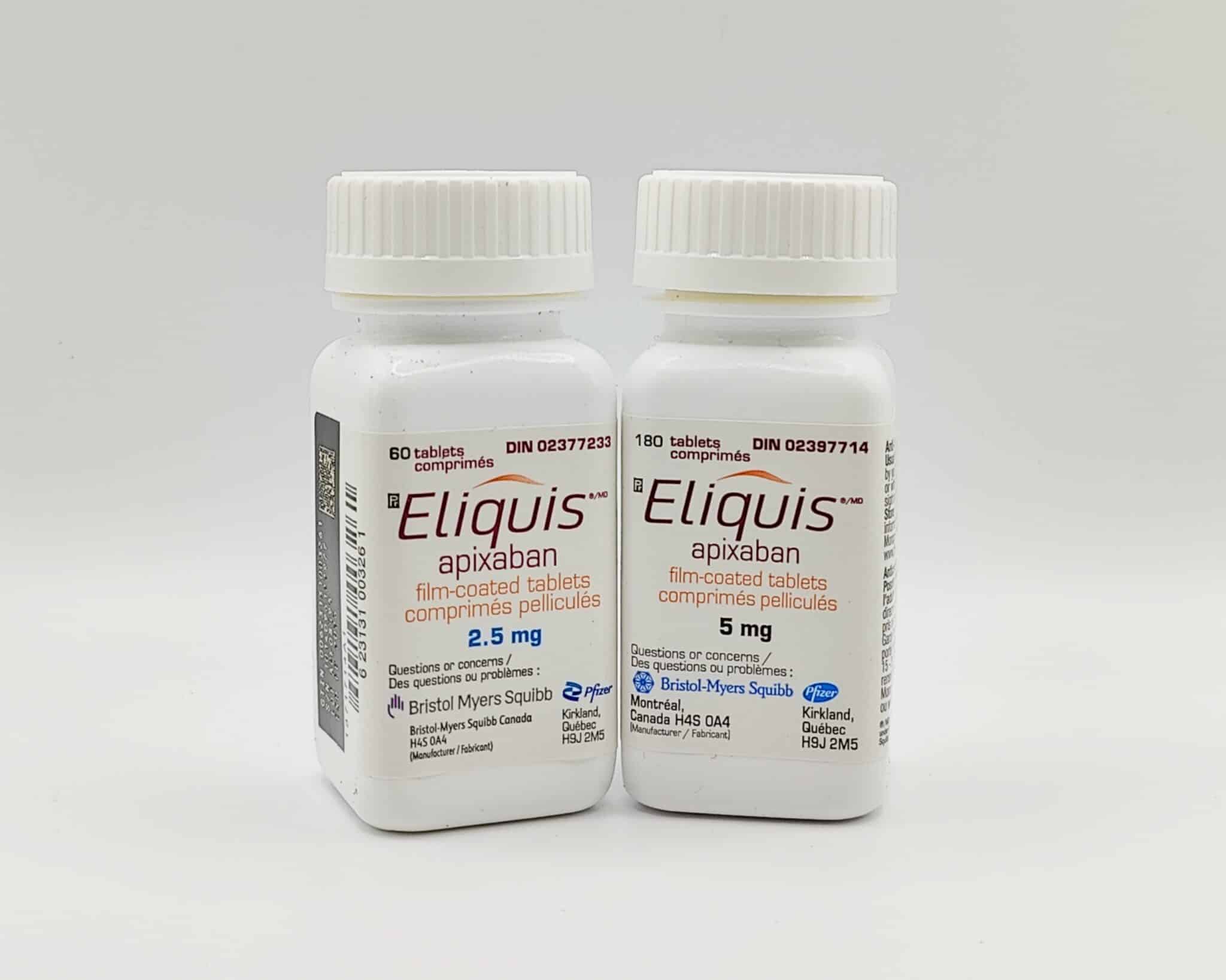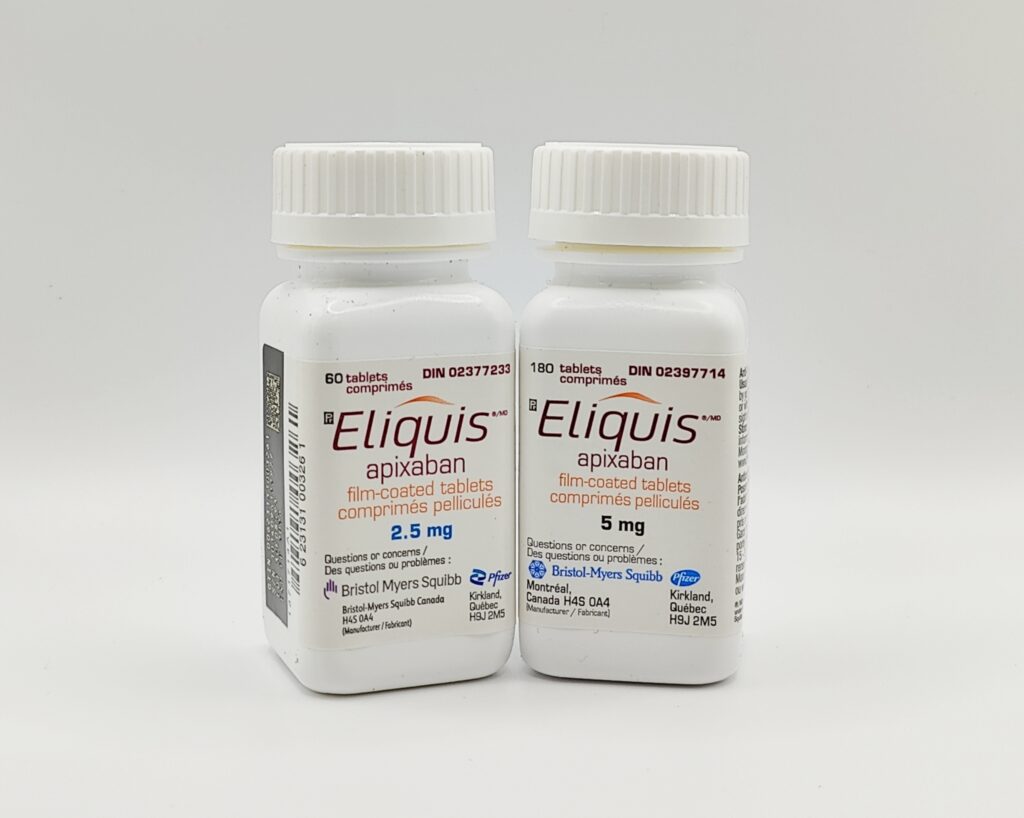Eliquis and Drug Interactions: What Patients Need to Know
Eliquis and Drug Interactions: What Patients Need to Know
- Todd P
Eliquis (apixaban) is a commonly prescribed anticoagulant used to prevent blood clots and reduce the risk of stroke in patients with conditions like atrial fibrillation, deep vein thrombosis (DVT), or pulmonary embolism (PE). While Eliquis is effective and convenient, it’s crucial to be aware of potential drug interactions that could impact its effectiveness or increase the risk of side effects, such as bleeding.
In this guide, we’ll discuss common medications, like NSAIDs, that can interact with Eliquis, what to watch out for, and when to contact your doctor.
How Eliquis Works
Eliquis belongs to a class of medications known as direct oral anticoagulants (DOACs). It works by:
- Inhibiting Factor Xa: This enzyme is critical in the blood clotting process.
- Disrupting clot formation: By blocking Factor Xa, it reduces the risk of harmful clots.
- Preventing complications: It helps lower the risk of conditions like:
- Stroke
- Deep vein thrombosis (DVT)
- Pulmonary embolism (PE)
- Heart attack
Eliquis is a convenient alternative to older blood thinners, such as warfarin, because it typically doesn’t require regular blood tests or dietary restrictions.
Potential Risks of Eliquis
Although Eliquis is effective, it comes with some risks:
- Increased bleeding risk: Its blood-thinning effects can make it easier to bleed, especially in certain situations:
- When combined with medications like aspirin, NSAIDs, or other blood thinners.
- If you have conditions like gastrointestinal bleeding or are at an advanced age.
- Close monitoring needed: Always inform your doctor of any other medications or supplements you’re taking.
What to Watch Out For
While taking Eliquis, it’s important to monitor for signs of excessive bleeding or other side effects, including:
- Unusual Bruising: Small bruises that seem to appear without reason.
- Prolonged Bleeding: Cuts or nosebleeds that take longer to stop.
- Dark or Tarry Stools: A sign of gastrointestinal bleeding.
- Severe Headaches: Could indicate bleeding in the brain, especially after a fall or injury.
- Bloody Urine: Pink, red, or brown discoloration in urine.
Medications That Interact with Eliquis
1. NSAIDs (Non-Steroidal Anti-Inflammatory Drugs)
- Examples: Ibuprofen (Advil, Motrin), Naproxen (Aleve), Aspirin.
- Why It’s a Concern: NSAIDs can increase the risk of gastrointestinal bleeding when taken with Eliquis. They also inhibit platelets, which are essential for blood clotting, compounding the blood-thinning effects of Eliquis.
- What to Watch For: Signs of bleeding, such as black stools, prolonged bleeding from cuts, or unexplained bruising.
2. Antiplatelet Medications
- Examples: Clopidogrel (Plavix), Ticagrelor (Brilinta).
- Why It’s a Concern: These drugs are often prescribed for patients with cardiovascular conditions and also inhibit platelet activity, increasing bleeding risk when combined with Eliquis.
3. Other Anticoagulants
- Examples: Warfarin, Dabigatran (Pradaxa), Rivaroxaban (Xarelto).
- Why It’s a Concern: Combining multiple anticoagulants significantly increases the risk of bleeding. These combinations are rarely prescribed unless closely monitored by a healthcare provider.
4. Certain Antibiotics and Antifungals
- Examples: Clarithromycin, Erythromycin, Ketoconazole.
- Why It’s a Concern: These drugs can interfere with how Eliquis is metabolized in the liver, either increasing its blood levels (raising bleeding risk) or reducing its effectiveness.
5. Herbal Supplements
- Examples: St. John’s Wort, Ginkgo Biloba.
- Why It’s a Concern: Some supplements can affect the liver enzymes that metabolize Eliquis, altering its concentration in the blood.
6. Antidepressants
- Examples: Selective Serotonin Reuptake Inhibitors (SSRIs) like sertraline or fluoxetine.
- Why It’s a Concern: SSRIs and similar medications can increase the risk of bleeding, especially in the stomach and intestines.
When to Contact Your Doctor
You should contact your doctor immediately if you experience:
1. Severe or Prolonged Bleeding: Any bleeding that doesn’t stop with basic first aid.
2. Signs of Internal Bleeding: Symptoms like dizziness, fatigue, or black stools.
3. Injury or Falls: A fall or trauma that could cause internal bleeding, especially if you hit your head.
4. Medication Changes: Before starting any new medication, even over-the-counter drugs or supplements.
Tips to Minimize Drug Interactions
1. Always Inform Your Doctor: Make sure your healthcare provider knows all the medications and supplements you’re taking.
2. Avoid NSAIDs Unless Advised: Use acetaminophen (Tylenol) for pain relief instead of NSAIDs, unless your doctor has approved their use.
3. Follow Prescribed Doses: Never adjust your Eliquis dosage without consulting your doctor.
4. Regular Check-Ins: Schedule periodic follow-ups to ensure Eliquis is working effectively and monitor for potential side effects.
Affordable Access to Eliquis
Eliquis can be expensive for many U.S. patients, but you can save significantly by ordering through trusted Canadian prescription referral services like Over the Border Meds. These services connect you with licensed Canadian pharmacies, offering high-quality medications at a fraction of the cost.
Conclusion
Eliquis is a highly effective medication for preventing blood clots and reducing stroke risk, but it’s essential to be aware of potential drug interactions, particularly with NSAIDs, antiplatelets, and other blood thinners. By understanding what to watch for and working closely with your healthcare provider, you can safely manage your treatment and minimize risks.
For affordable access to Eliquis, visit Over the Border Meds and learn how you can save on your prescription today.


